Embed presentation
Download to read offline
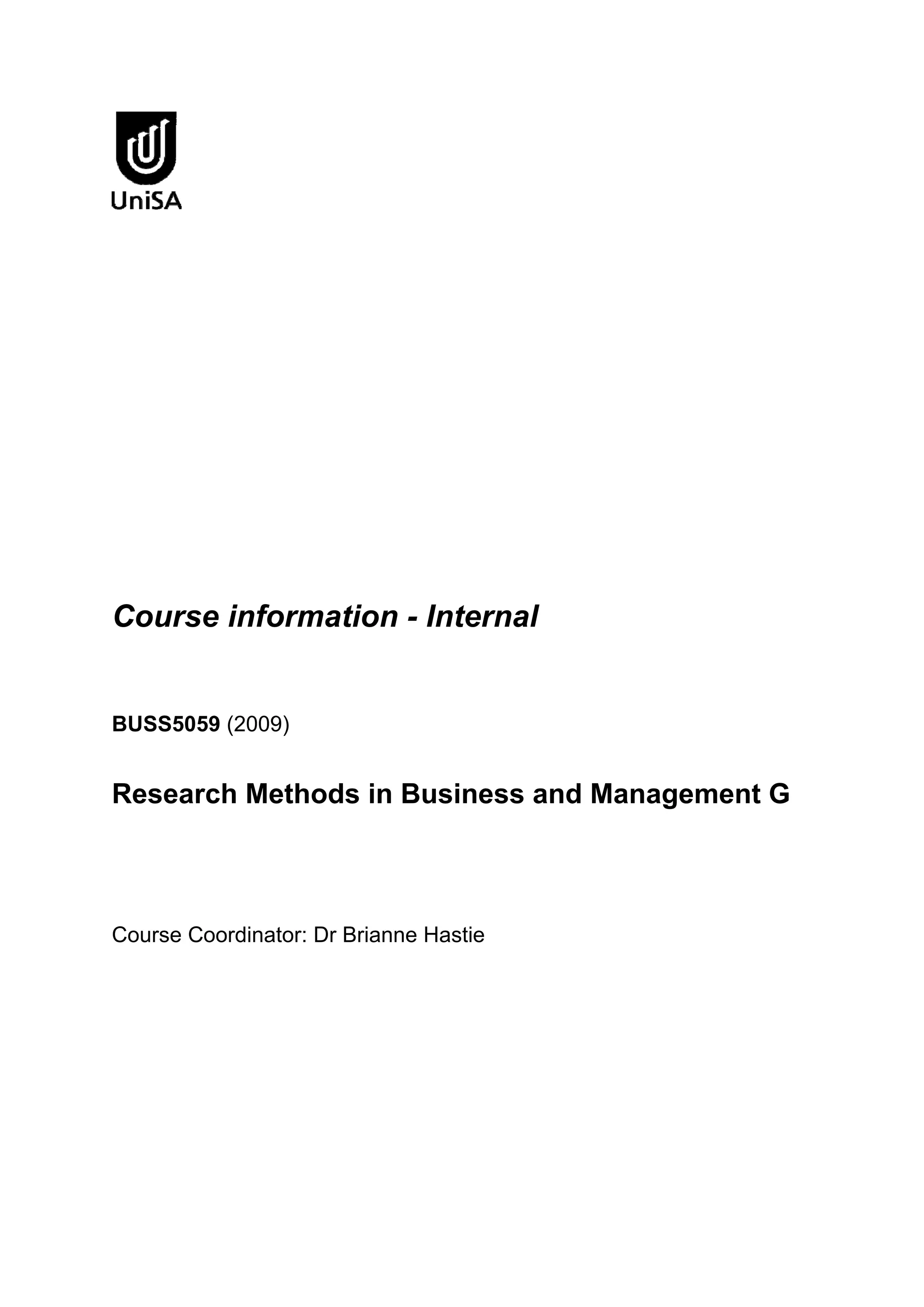
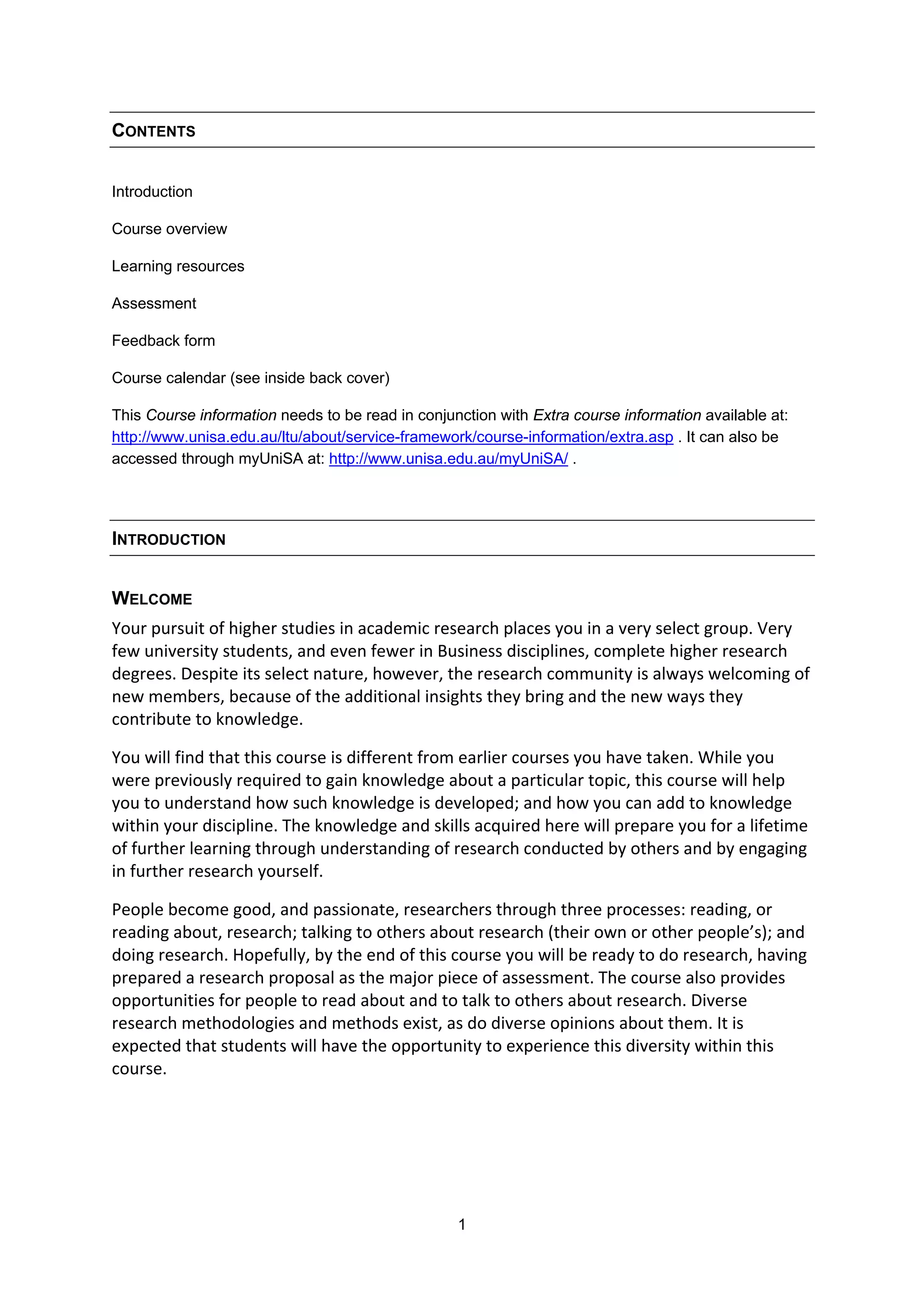
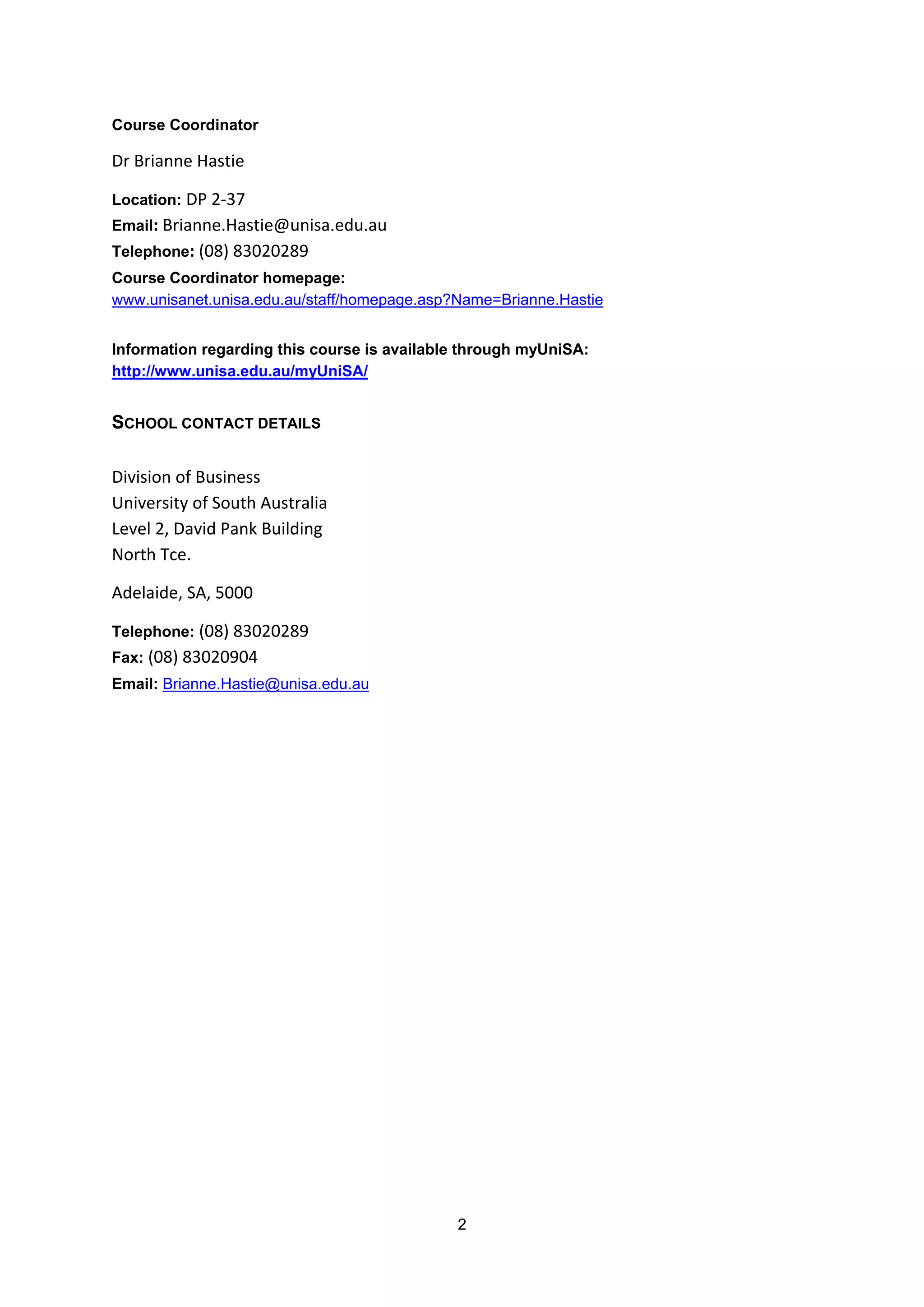
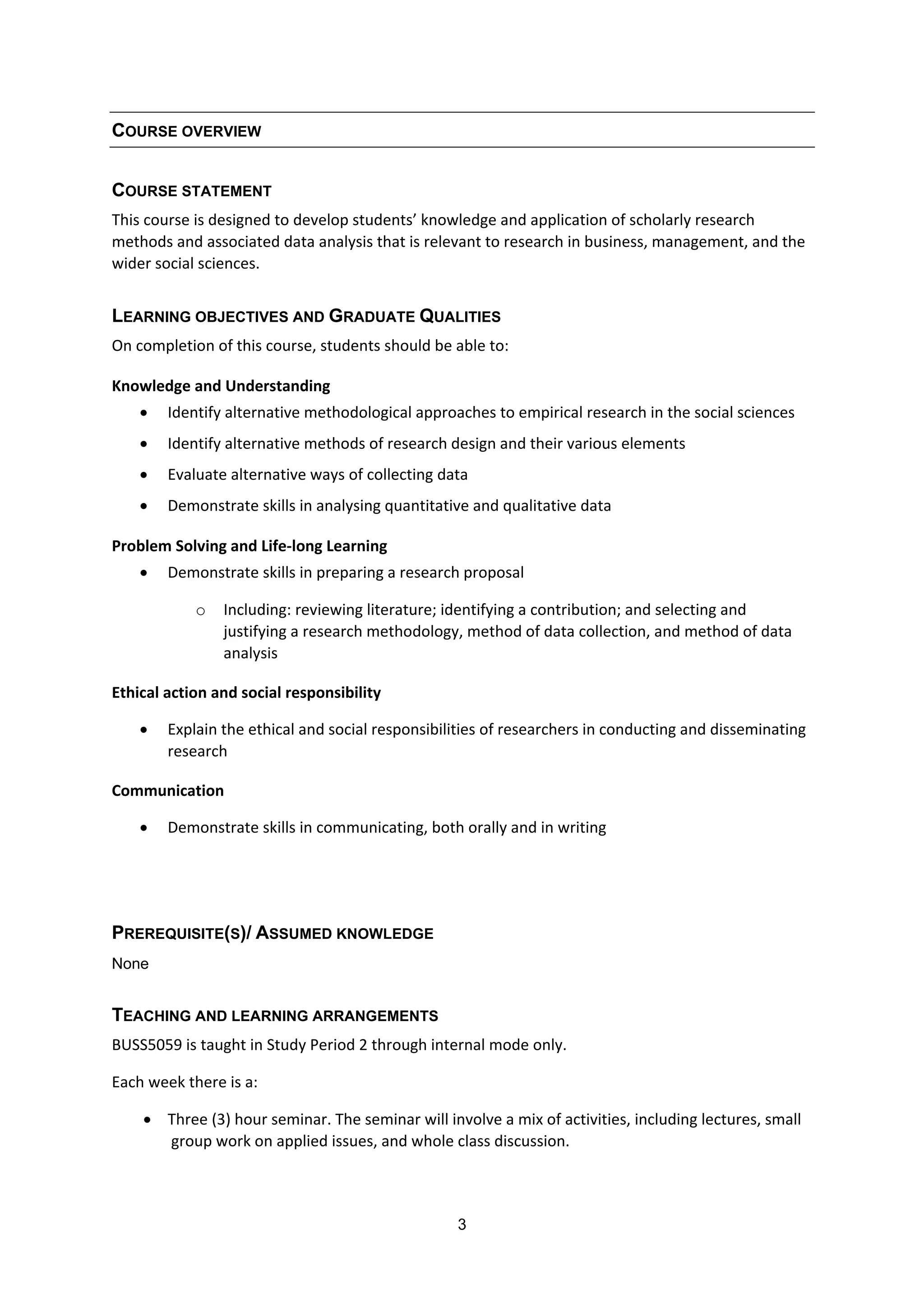
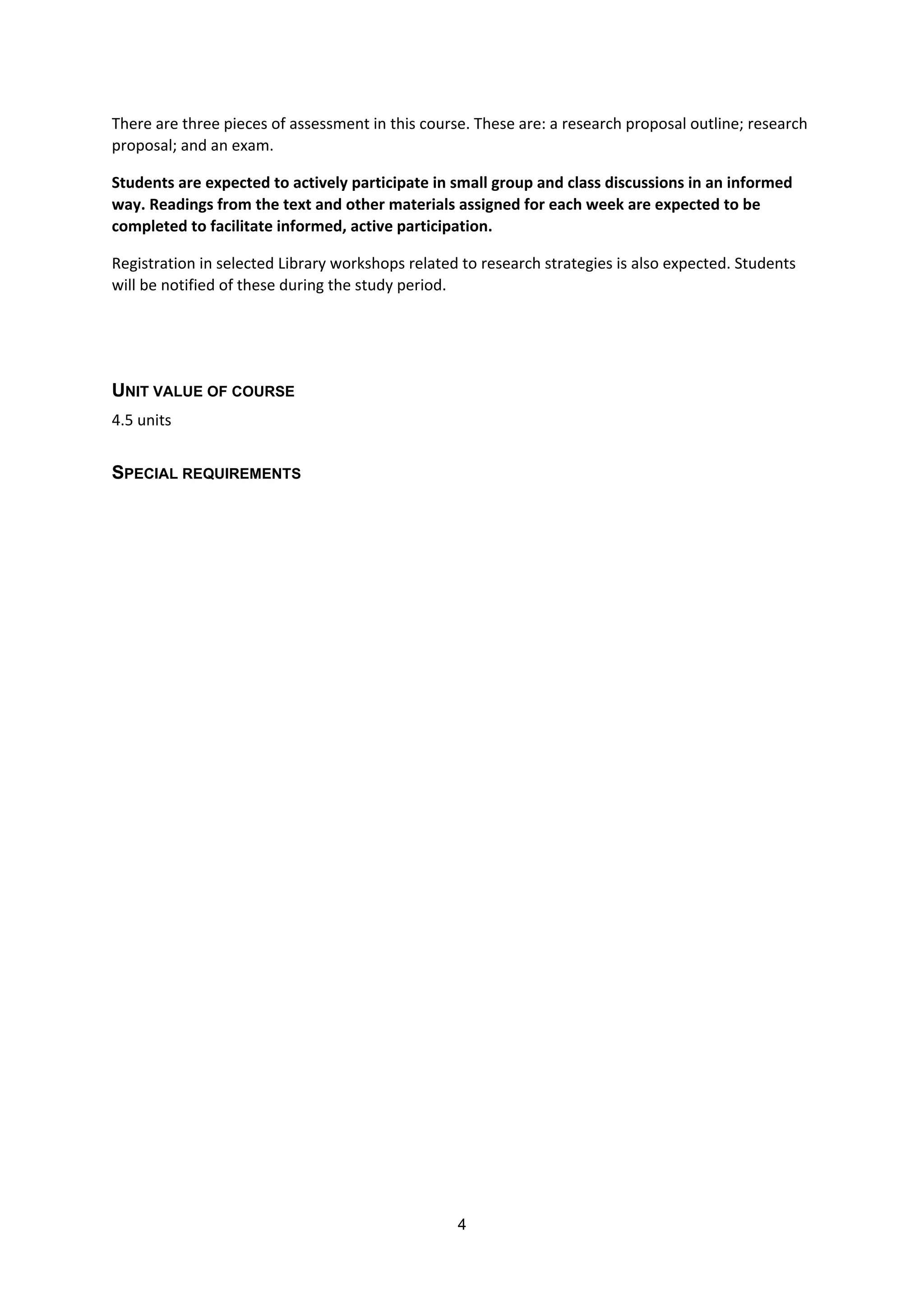
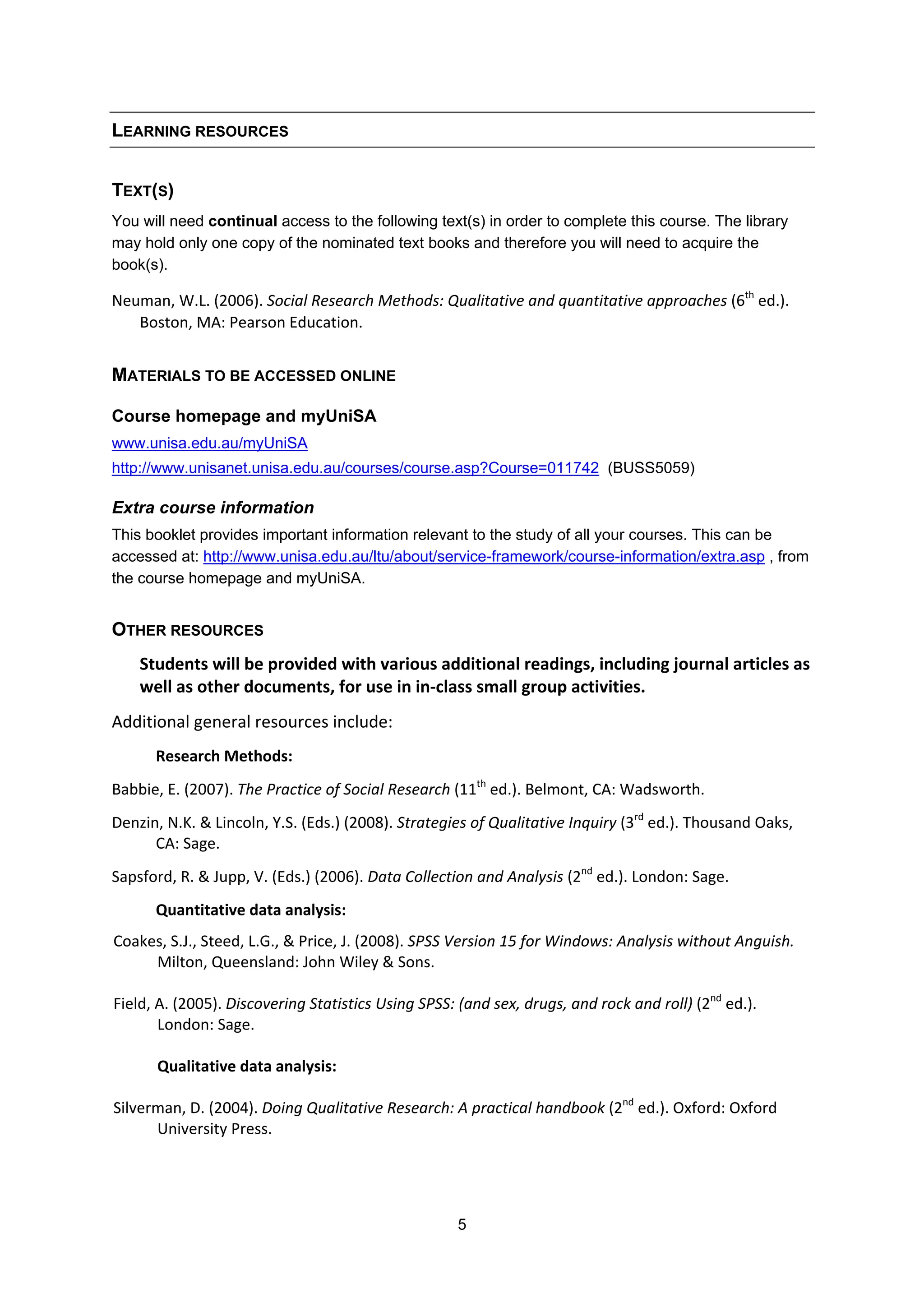
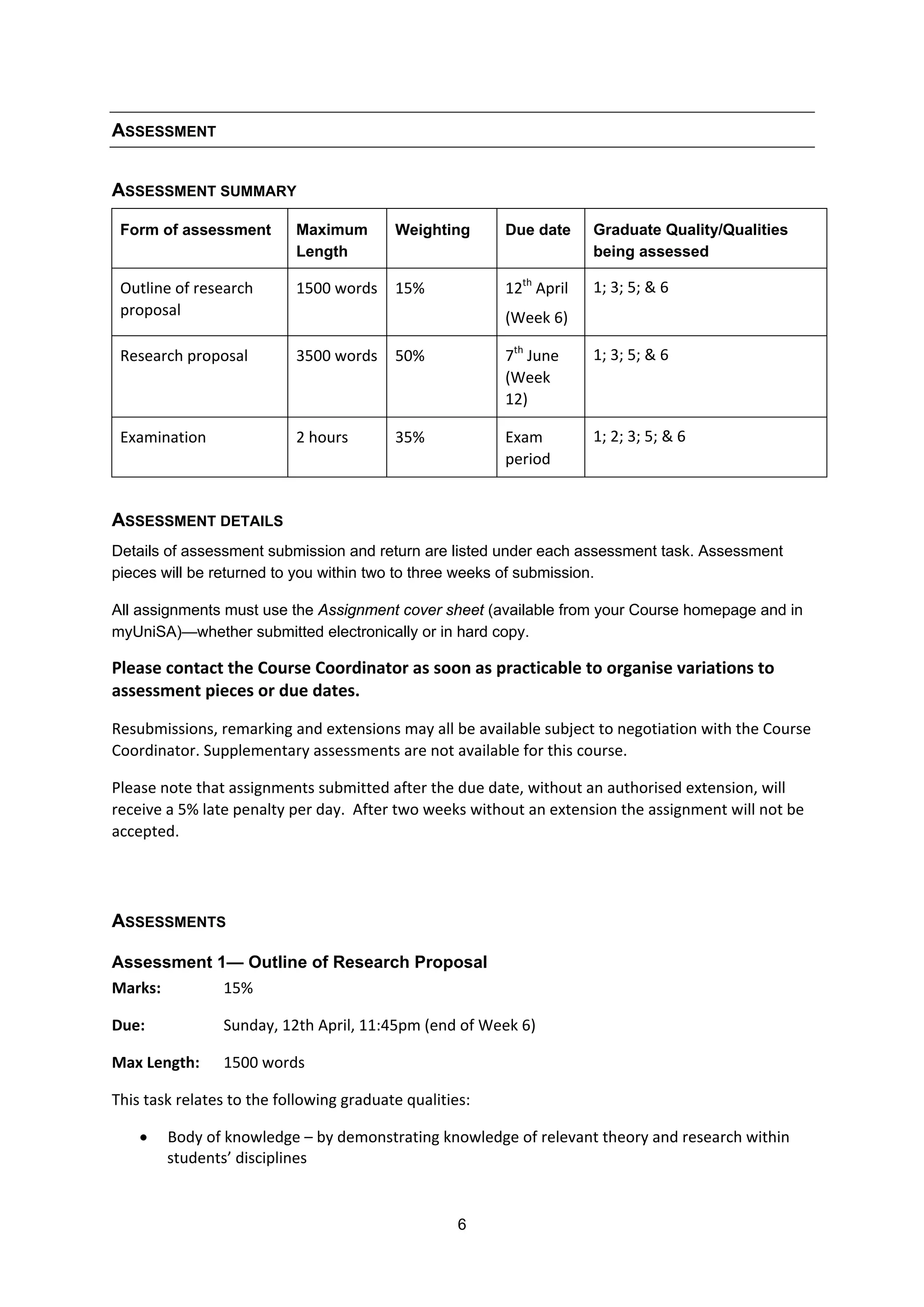
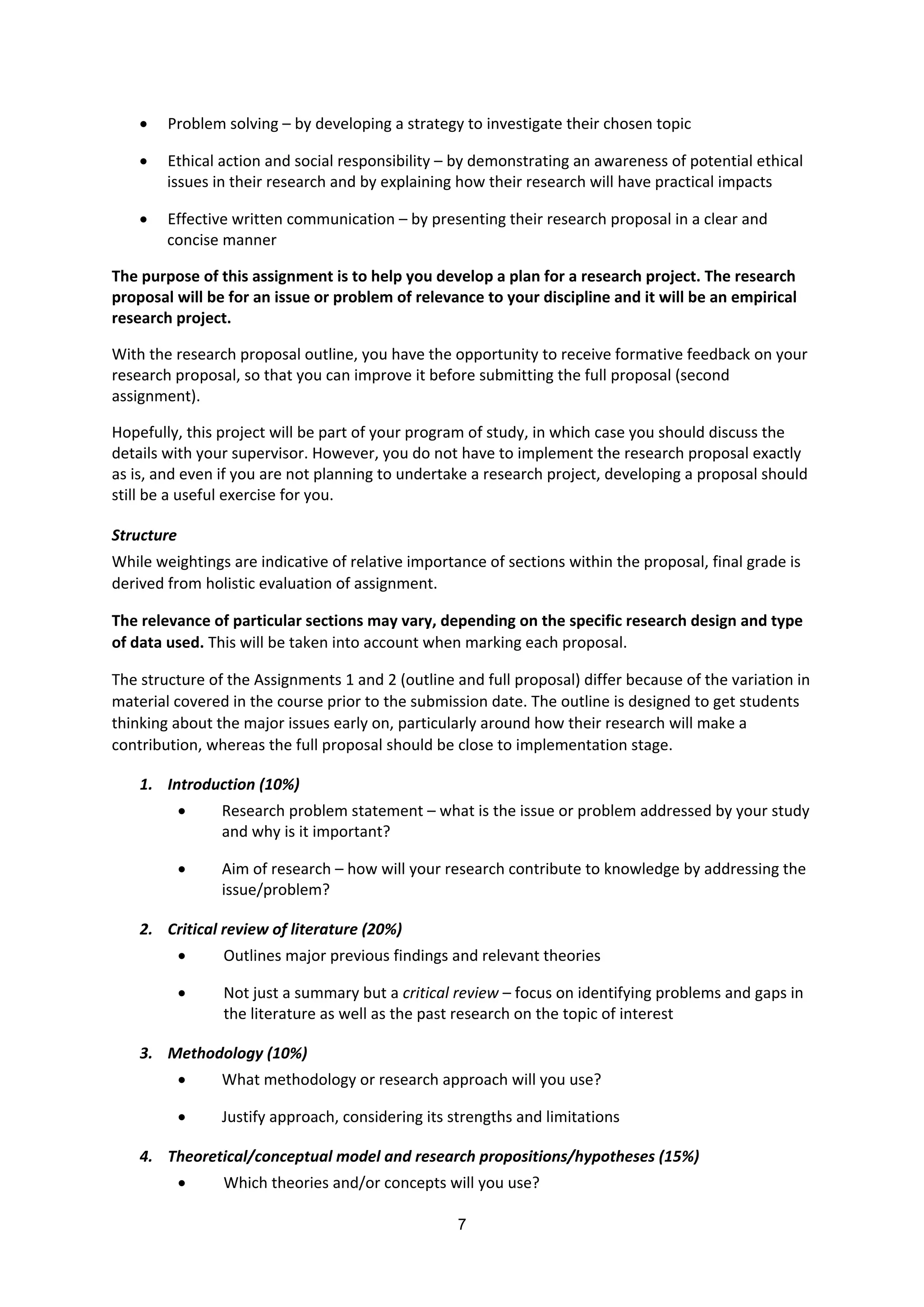
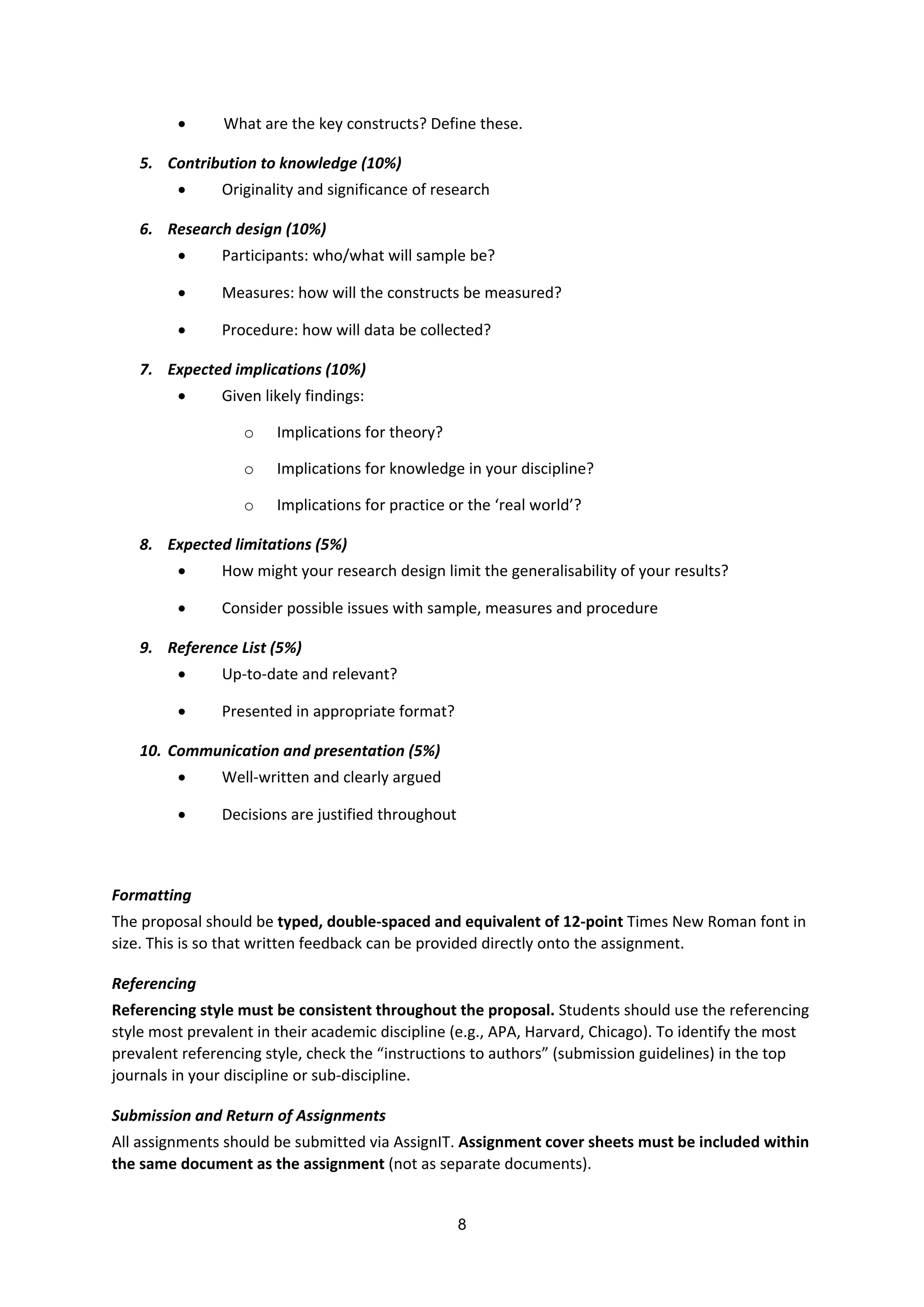






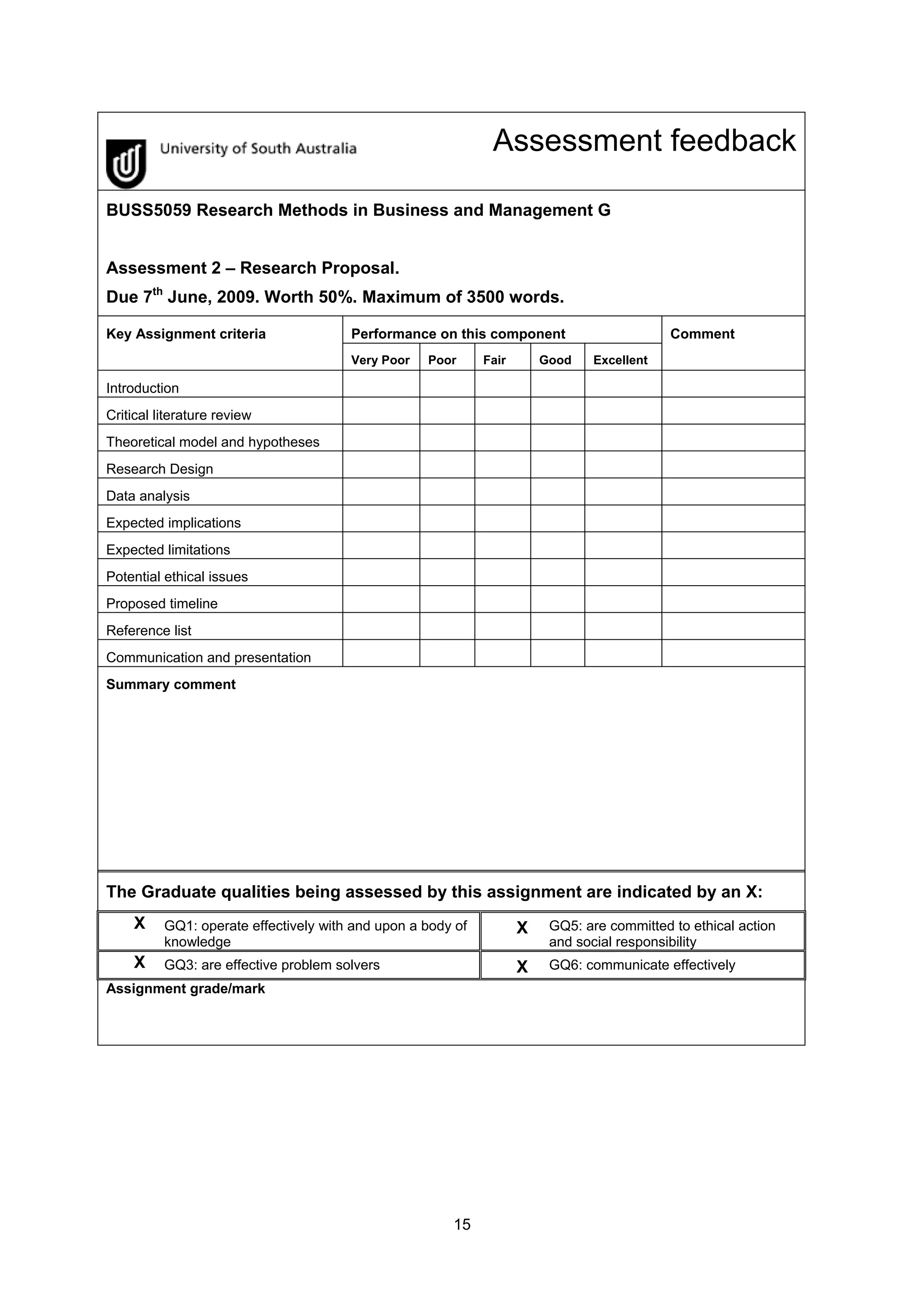

This 3 sentence summary provides the key details about the document: 1) The document is a course information guide for an internal research methods course at the University of South Australia, covering topics like the course coordinator, learning resources, assessment, and course calendar. 2) The course aims to develop students' knowledge and application of research methods relevant to business and management research, and assessments include a research proposal outline, full research proposal, and exam. 3) Students are expected to actively participate in seminars, complete assigned readings, and may need to acquire the recommended textbook in order to complete the course.
















